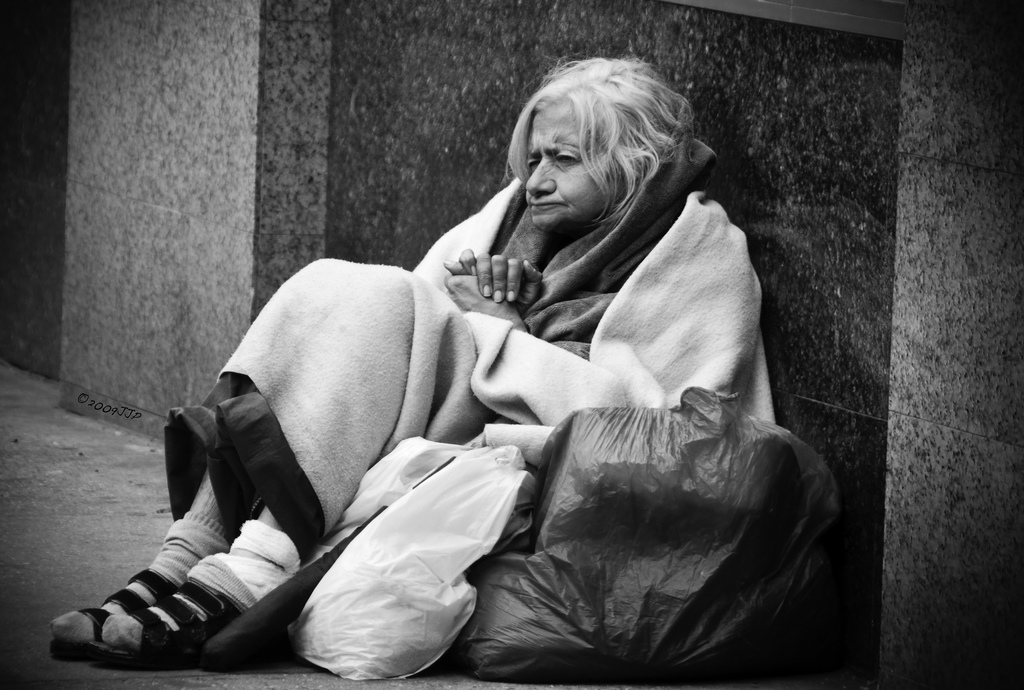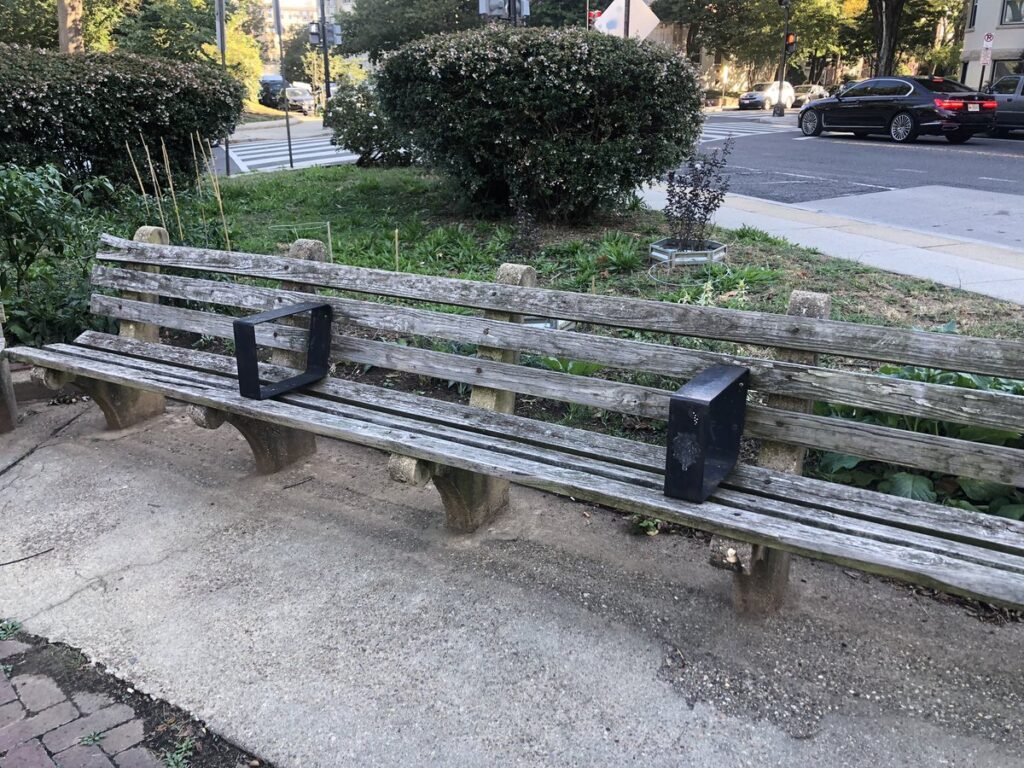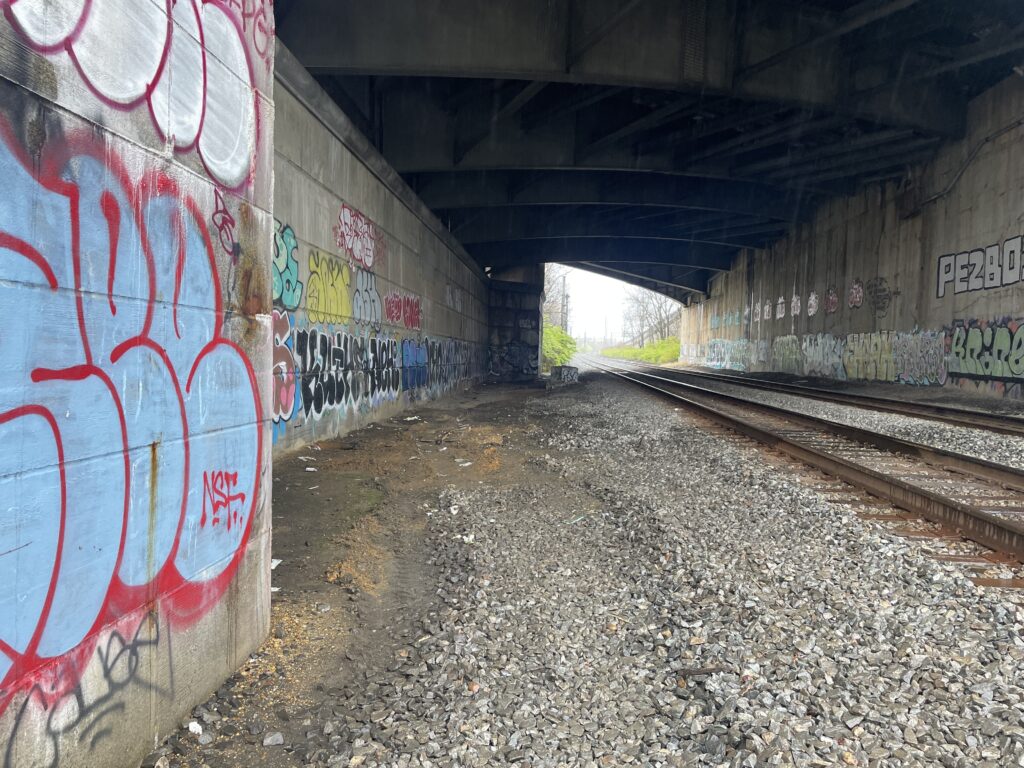According to the District of Columbia Interagency Council of Homelessness (ICH), the number of families experiencing homelessness in the D.C. area increased 50 percent between 2010 and 2014, while the national rate decreased 11 percent. Providing aid to the rising number of homeless families absorbs a big chunk of limited resources and leaves little for the single and elderly.
What exactly quantifies a senior citizen is very hard to determine when looking at the homeless population. While the age of 45 or 50 may not be deemed elderly by a general consensus, many homeless adults aged 45-60 often have the physical and mental health of someone much older due to many hard years of living on the streets, according to the National Coalition for the Homeless (NCH).
“Among the elderly who have been chronically homeless, cases of mental illnesses or substance abuse are especially present,” said Brother John Gleason, So Others Might Eat (SOME) Senior Director of Senior Services.
Cases of “first-time” homelessness among seniors is also on the rise due to economic instability and the scarcity of affordable housing in the district. “There is a clear upward trend in the number of older persons aged 50-64 among the homeless population,” said Gleason. “Most of these people fall through the cracks and are not old enough for Medicare.”
These adults miss the age-based safety net provided by government funding and many shelters are not equipped to accommodate older members. Many homeless people must wait in long lines to receive a bed or climb flights of stairs to reach a shelter, actions that are not always possible for the elderly or others with limited mobility.
Doris Robinson, a 52-year-old Street Sense vendor, has run into trouble at local shelters. “I’ve been violated, jumped, raped, all in the shelter,” said Robinson.
Many non-working shelter residents see older, employed people as vulnerable and an opportunity for easy money, according to Robinson. Elderly working adults are especially at risk when private shelter rooms are not available.
“Working people will be consistent with getting up, getting to their job and stuff but non-working people just sit around with nothing to do,” said Robinson. “That’s how I got jumped. It’s a dangerous problem.”
A study done in 2007 by the NCH showed that homeless seniors are more than 25 percent more likely to be the victim of a violent attack than their younger counterparts.
Premature death of elderly homeless most often results from a minor or acute injury made worse by prolonged exposure to harsh conditions, according to the National Healthcare for the Homeless Council.
In addition to being a victim of violence, Doris Robinson has also contracted various illnesses from shelters.
“I caught this from a shelter,” said Robinson referring to a series of white patches on her palm. “It has to be looked at by a doctor, so I have to save my money to be able to afford the right one.”
Saving money is difficult, even with the income Robinson earns from Street Sense. “They’ll sit here, waiting for me to go to sleep and then they’ll jump me and take my money,” said Robinson. “How am I supposed to live like that?”
Elderly people who try to survive solely on Social Security benefits find that those are almost never enough to cover the cost of housing. NCH research shows that a person receiving Social Security benefits would have to pay 112 percent of that income to cover rent alone.
“There’s not a lot out there,” said Angie Whitehurst, a Street Sense vendor. “The city has resources through the Office of Aging to identify housing, but what they don’t have is money.”
At a housing expo hosted by the D.C. Department of Housing and Community Development on June 27, Whitehurst ran into seniors who had been on the housing voucher list for upwards of six years.
When affordable housing is found, many patrons don’t completely understand the differences between renting a room and renting an apartment. Whitehurst said that in the case of room rentals, most clauses protect the owner of the property or room, rather than the resident. “It’s a field day for slum landlords,” said Whitehurst.
For the few seniors who have found housing, the dangers of isolation and lack of support systems still lurk.
The Department of Aging established the program Age Friendly DC in order to create an “inclusive and accessible environment that encourages active and healthy living for all residents,” according to agefriendly.dc.gov.
This program seeks to help older adults by making local community centers, businesses, and transportation services available and accessible. This initiative also focuses on creating an inclusive environment with the introduction of programs that celebrate cultural diversity and multigenerational interaction.
“What’s very scary to me is the number of people who are my age, cause I’m 62, who are caught in this web of homelessness and unemployment,” said Whitehurst.
According to a Government Accountability report from 2012, is it much more difficult for older Americans to find jobs than it is for the younger population. Senior citizen spent an average of 35 weeks looking for a job, while younger Americans spent just 26 weeks.
This is due to the elderly having out-of-date skills — especially in a very technologically advanced and dependent environment — expensive healthcare rates, and retirement expectations, according to the report.
However, some support systems are in place. SOME is an interfaith, community organization that works to help those under the poverty line in the Washington D.C. area. SOME has specific programs for the elderly, such as providing emergency housing and counseling to elderly people who have mental illnesses or histories of substance abuse.
“When people experience homelessness, especially older individuals, a breakdown in physical and mental health occurs,” said Gleason.
SOME offers a day center for senior citizens where they are able to come for case management, counseling, transportation services and more. SOME also runs a special program called the Kuehner House, which provides affordable housing to 42 single, senior adults who would not be able to afford housing otherwise.
Most of their programs have trained social workers on site to assist and address the needs of the elderly.
In 2014 alone, SOME and its supporters have provided emergency housing for 176 adults in psychiatric crisis and 20 abused elderly experiencing homelessness.
“We’re working to secure safe and stable housing, as well as a lifestyle, for our homeless seniors,” said Gleason.
While programs are in place to help, there is still a great need. The US Census Bureau predicts that the number of elderly people experiencing homelessness with increase 30 percent by the year 2020.








